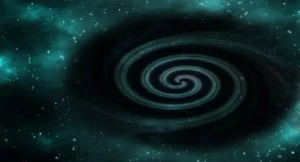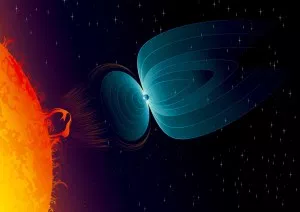Integrating the We*
Do I contradict myself? Very well, then I contradict myself, I am large, I contain multitudes.” – Walt Whitman
I recently noticed, when observing my internal monologue, that sometimes the pronoun “We” is used rather than “I”. Once noticed, I attempted to be aware of the frequency of this usage. My guess at the moment is that it is approximately twenty percent. Now, I have previously written about my observation that “my” identity seems to operate as an I/We, as it appears to be a collection of ever-shifting perspectives (We) but expresses itself as fixed and singular (I). It had not, however, come to my attention that “We” had snuck into my automated self-talk.
This new observation about the naturally arising plural pronoun became much more apparent in a recent seven-day meditation retreat with Jeff Carreira that I attended. The subtly nuanced undertones that lie beneath my monologues became easily distinguishable in that vast and quiet space, and certain centers of gravity became visible.
I have also said before that thoughts have a kind of gravity, which continues to exist in the surrounding energetic environs after their creation. Habitual thinking, like concentrated matter, has gravity commensurate with its mass, thus more focused thinking results in more gravity and  that gravitational force will thereby more firmly hold our attention. It’s a bit of a trap, as our attention generates gravity and the gravity draws our attention. Our identity, whatever that is, will primarily dwell around these most frequented “centers of gravity”. …
that gravitational force will thereby more firmly hold our attention. It’s a bit of a trap, as our attention generates gravity and the gravity draws our attention. Our identity, whatever that is, will primarily dwell around these most frequented “centers of gravity”. …

 The foundation of this Blog is that we live in constantly moving energetic fields. At the most fundamental physical levels, the Earth is rotating and also orbiting the Sun, which in turn is rotating in our spiral galaxy, which exists in a universe that is expanding. Add to that the fairly recent measurement of gravitational waves from two black holes that merged 1.3 billion years ago and rippled space/time here on Earth in Sept. of 2015. Apparently there are innumerable large-scale interactions occurring in space that have this type of impact. Given that they are now measureable, it means that they are, and have always been, sense-able as energetic motion. This kind of motion, of course, does not include all of the smaller flows of weather, wildlife, people, our respiration, our moods and the like, with which we are more familiar. Though the scales are obviously quite different, our bodies (gross, subtle or causal) can tune to any of it, in my view, even though our attention tends to habitually remain focused in particular energetic ranges. The bottom line here is that everything is moving and what moves is experienceable by the very fact that it is moving, in relation to some given point of perception. …
The foundation of this Blog is that we live in constantly moving energetic fields. At the most fundamental physical levels, the Earth is rotating and also orbiting the Sun, which in turn is rotating in our spiral galaxy, which exists in a universe that is expanding. Add to that the fairly recent measurement of gravitational waves from two black holes that merged 1.3 billion years ago and rippled space/time here on Earth in Sept. of 2015. Apparently there are innumerable large-scale interactions occurring in space that have this type of impact. Given that they are now measureable, it means that they are, and have always been, sense-able as energetic motion. This kind of motion, of course, does not include all of the smaller flows of weather, wildlife, people, our respiration, our moods and the like, with which we are more familiar. Though the scales are obviously quite different, our bodies (gross, subtle or causal) can tune to any of it, in my view, even though our attention tends to habitually remain focused in particular energetic ranges. The bottom line here is that everything is moving and what moves is experienceable by the very fact that it is moving, in relation to some given point of perception. …



